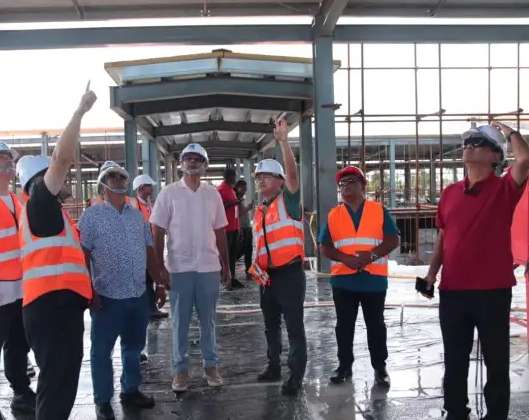Kidney Transplant Program Established in Georgetown, Guyana
Guyana’s healthcare system has undergone a significant transformation since August 2023, marked by substantial investments in infrastructure, expansion of services, and a renewed focus on preventative care. This revitalization spans multiple areas, including mental health, maternal and child health, specialized care, and capacity building within the healthcare workforce. The government’s commitment to improving healthcare access and quality is evident in the numerous initiatives implemented across the country, particularly benefiting previously underserved communities.
One of the most notable achievements is the launch of a dedicated mental health program targeting children and adolescents. This initiative addresses a critical gap in mental healthcare services, aiming to provide early intervention and support for young people facing mental health challenges. Concurrent with this, the Child and Youth Health Program has conducted nearly 20,000 health screenings, demonstrating a proactive approach to preventative care and early detection of potential health issues in children. These programs represent a significant stride toward ensuring the well-being of Guyana’s younger generations.
Specialized medical care has also seen significant advancements. The Georgetown Public Hospital, a central institution in Guyana’s healthcare network, has received certification for kidney transplants, a landmark achievement that elevates the level of care available within the country. This eliminates the need for patients to seek costly and often logistically challenging treatment abroad. Furthermore, the expansion of eye care services through free eye tests and spectacles vouchers significantly improves access to vital vision care, addressing a crucial aspect of public health. Women’s health has also been prioritized with the implementation of a national plan for cervical cancer screening and support, enhancing preventative care and early detection for this prevalent disease. The development and implementation of national action plans for mental health and suicide prevention further demonstrate the government’s commitment to addressing critical health concerns.
Significant investments in healthcare infrastructure are a cornerstone of Guyana’s healthcare transformation. New health centers have been established, existing X-ray departments have been upgraded, and a state-of-the-art hospital equipped with advanced surgical and diagnostic equipment is currently under construction. These infrastructural improvements enhance the capacity of the healthcare system to deliver high-quality services and expand access to advanced medical technologies. Crucially, these developments extend beyond urban centers, reaching remote areas that historically lacked access to adequate healthcare facilities.
Expanding access to healthcare in remote areas is a key element of Guyana’s healthcare strategy. Previously underserved communities now benefit from improved health facilities and the availability of services like ultrasound, which were previously inaccessible. This expansion of services to remote regions represents a significant step toward health equity and ensures that all citizens, regardless of location, can access essential healthcare. This focus on reaching underserved populations underscores the government’s commitment to inclusive healthcare delivery.
The human resource component of Guyana’s healthcare transformation is equally crucial. Significant investments in training and education have resulted in the graduation and deployment of numerous healthcare professionals, including pharmacy assistants, lab technicians, and community health workers. These trained professionals are strategically deployed across different regions, bolstering the workforce and improving the delivery of healthcare services, particularly in underserved areas. The introduction of a Bachelor’s Degree in Respiratory Care at the University of Guyana further strengthens the healthcare system by providing specialized training in a critical area of medical care. This investment in education ensures a sustainable pipeline of skilled healthcare professionals to meet the evolving needs of the country’s healthcare system.
Share this content:












Post Comment